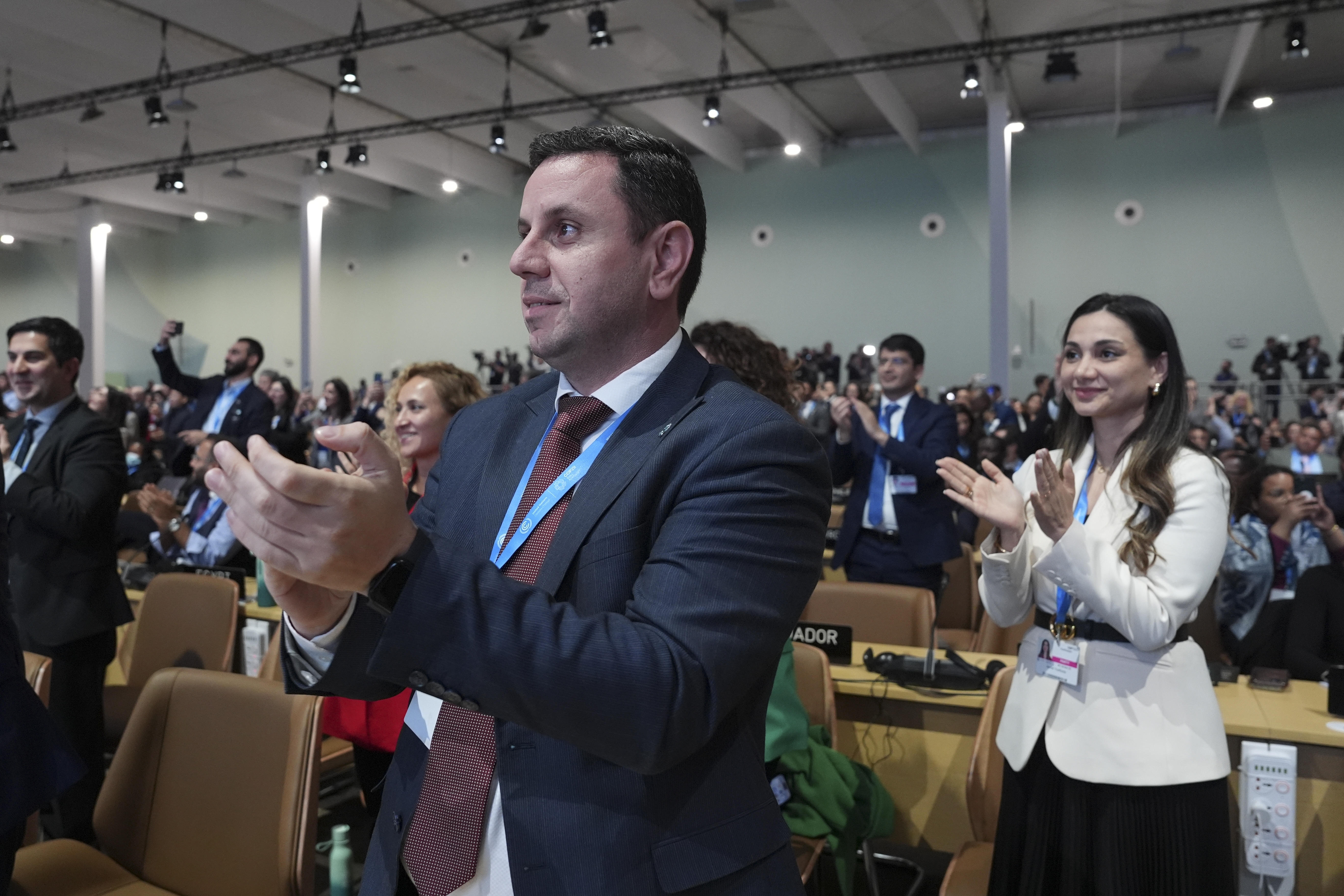
BAKU - A package of climate agreements was reached early Sunday at the 29th session of the Conference of the Parties to the United Nations Framework Convention on Climate Change (COP29).
The agreements included decisions on the New Collective Quantified Goal (NCQG) for climate financing and issues relating to the global carbon market mechanism under Article 6 of the Paris Agreement.
ALSO READ: COP29 climate summit overruns as $250b draft deal stalls
The agreements set the post-2025 climate finance targets, including an annual funding of at least $300 billion from developed countries and a broader climate financing goal of at least $1.3 trillion per year by 2035 for supporting developing countries' climate actions.
The arrangement is expected to lay the groundwork for developing countries to undertake climate action and submit a new round of nationally determined contributions next year.
Paris Agreement
Nearly 200 parties also broke years of deadlock in multilateral negotiations, reaching a consensus on the international carbon market mechanism under Article 6 of the Paris Agreement. This marked the completion of the implementation rules for the market mechanism under Article 6 and resolved the last pending issue within the Paris Agreement.
Article 6 provides trusted and transparent carbon markets for countries to collaborate on emission reductions, potentially saving up to $250 billion annually in implementing national climate plans.
ALSO READ: Collective action urged to meet Asia’s climate finance needs
"We have ended a decade-long wait and unlocked a critical tool for keeping 1.5 degrees in reach," said COP29 President Mukhtar Babayev. "Climate change is a transnational challenge and Article 6 will enable transnational solutions."
With the agreement, carbon markets are poised to drive substantial investment in developing countries, ensuring transparency and environmental integrity. The newly adopted rules will facilitate real, additional, and measurable emission reductions while respecting human rights and promoting sustainable development.
The agreement follows years of stalled negotiations at previous COP meetings, including those in Glasgow and Sharm El-Sheikh, where initial rules for carbon markets were set but key components remained unresolved. COP29's dual-track approach broke the deadlock, leading to a unanimous adoption of the final rules for Article 6.
In addition, the conference also reached decisions on various issues, including the carbon trading mechanism, the implementation of the Global Stocktake results, the mitigation work program, and the global adaptation goal.
ALSO READ: Collective action urged to meet Asia’s climate finance needs
In his speech at the closing plenary session, Zhao Yingmin, head of the Chinese delegation and vice-minister of ecology and environment, highlighted that this year marks the 30th anniversary of the entry into force of the United Nations Framework Convention on Climate Change (UNFCCC). Over the past 30 years, the process of climate governance under the convention has faced challenges but has consistently moved forward.

Zhao emphasized that humanity is a community with a shared future, and in the face of the climate crisis, unity and collaboration are the only viable paths.
Zhao also noted that the outcome document on the NCQG revealed that developed countries' financial commitments still fall far short of meeting the needs of developing nations, and their financial obligations must be further clarified.
He added that addressing the global climate crisis requires adhering to the principle of "common but differentiated responsibilities," upholding multilateralism, and working together for mutual benefit.
READ MORE: ALSO READ: More than 50 countries sign UN sustainable tourism declaration
Zhao reaffirmed that China, as a responsible major developing country, will steadfastly promote the multilateral process and international cooperation on climate change, regardless of how the global landscape evolves.
China will continue to implement its national strategy for actively addressing climate change, pursue its carbon peaking and neutrality goals, and engage extensively in South-South climate cooperation to contribute to global green, low-carbon, climate-resilient and sustainable development, said Zhao.


